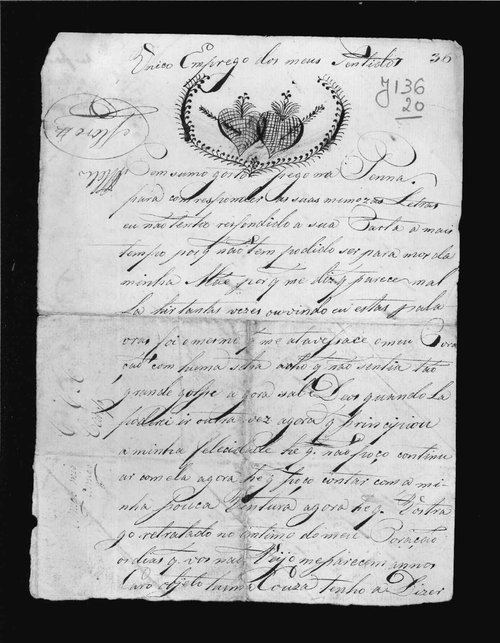Guest blog by Rita Marquilhas

Rita Marquilhas
In this guest blog, Rita
Marquilhas of the University of Lisbon, Portugal, discusses challenges
in producing multilingual academic research websites.
As a result of my recent experience with the coordination of a DH project, the P.S. Post Scriptum project (http://ps.clul.ul.pt), I'll respond the request from the 'Digital Mediations' strand asks its contributors to adopt in order to contribute to its blog by dealing with the issue of multilingual academic sites. My purpose is not to offer receipts or quick solutions, it's rather to present my testimony on the several levels that have required decisions from the project's team in order to have the materials offered both to Portuguese and Spanish competent readers (all theoretically, if not infallibly, bilingual readers), while not ignoring English readers.
The Post Scriptum project is the digital edition of private letters of the XVIth to the early XIXth century, written either in Portuguese or Spanish. These are documents whose context is largely recoverable because most were kept within court proceedings. We wanted to come up with a digital object that could be simultaneously a dictionary, a grammar, a thematically searchable edition of historical documents, and, last but not least, a long polyphonic 'novel' where the lives of ordinary people could be accompanied by the lay public instead of being buried under layers of inaccessible dossiers assembled 200, 300, 400 e 500 years ago.
As in all online platforms, be they Humanities endeavours or not, from the outset there was the question of which contents should unquestionably be presented in English. Looking back now to all our process, and risking to signal just the obvious, I would say that there was i) linguistic pragmatic reasons, ii) ethical scientific reasons, as well as iii) cultural reasons for our English translations choices
 i. linguistic pragmatic level (the question of online finesse as it surfaces on sites menus): in terms of minimal politeness, the Post Scriptum website, as in most academic sites, gave the signal that we were excluding no visitors — especially funders who carry out the project and who are systematically advised by international juries; Thus, all our interface’s menus are written not only in the sources languages (Spanish and Portuguese in this case) but also in English.
i. linguistic pragmatic level (the question of online finesse as it surfaces on sites menus): in terms of minimal politeness, the Post Scriptum website, as in most academic sites, gave the signal that we were excluding no visitors — especially funders who carry out the project and who are systematically advised by international juries; Thus, all our interface’s menus are written not only in the sources languages (Spanish and Portuguese in this case) but also in English.
ii. ethical-scientific level (the question of the replicability of scientific experiences): the DH, allowing for the replication of their experimental processes, have been contributing to enrich traditional humanities by bringing them closer, in this facet, to natural sciences' methodologies. In traditional humanities it took a lot for an interpretation operation to be replicable, and thus controllable: it took the unlikely condition of a second scholar living the same events of the first one along years of research and reflection. At the Post Scriptum project, we insisted on guaranteeing that our processes could be replicated by making all our data downloadable in TXT format and by translating both the search terminology and manuals (one of them, for now, is still only in Spanish) into English. At the textual encoding level, only the English translation was used on the XML labels.
iii. cultural level (the question of openness towards the lay public): due to the difficult workability of the human translation of all the Post Scriptum contents — a corpus of 2 million words, we gave way to a second-best goal: the human translation of the letters’ abstracts, while launching, at the same time, a system that would allow users to go by themselves to automatic translation programs with their best possible input: a version of the letters edition fully standardized for spelling and with regular punctuation added to it.
The rights for the manuscript reproductions are reserved by Instituto
dos Arquivos Nacionais - Torre do Tombo.
I wonder whether or not we can go much further in similar scholarly digital editions. In terms of linguistic ecology, i.e., the protection of linguistic diversity in the world, does the DH have a role to play in the process of preventing the propagation of the translation of contents into a lingua franca, even if the process gets extremely simple?